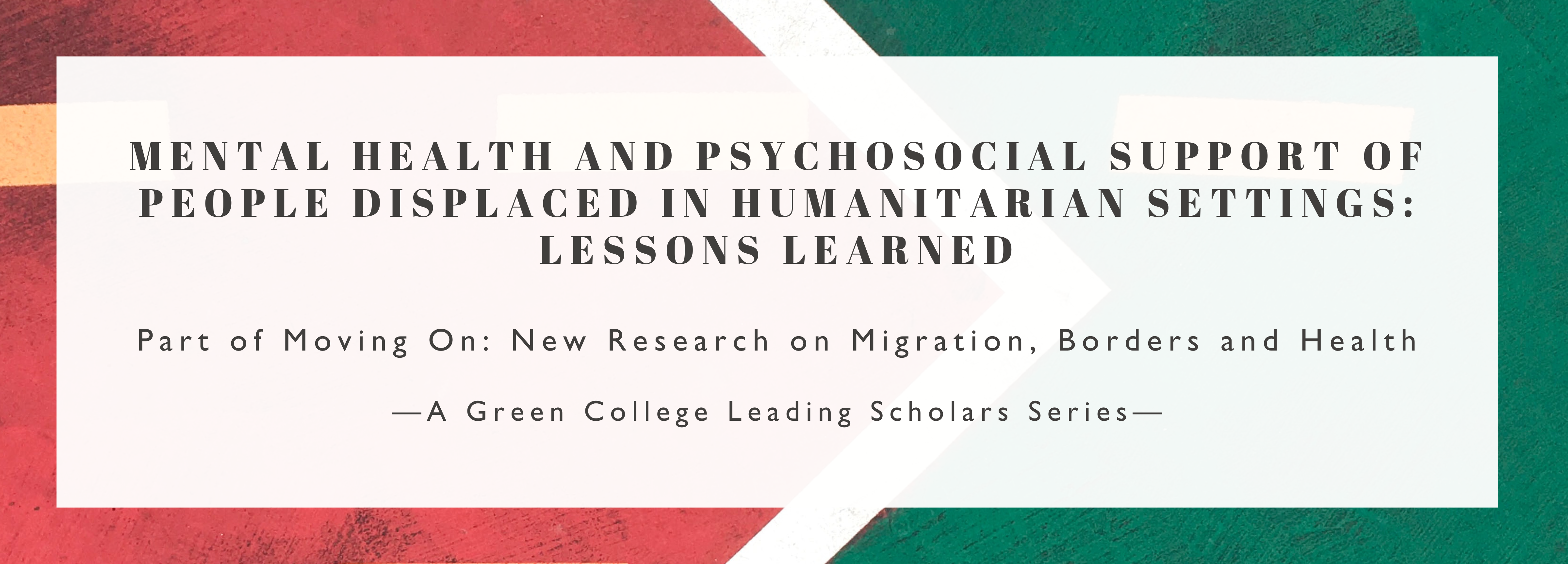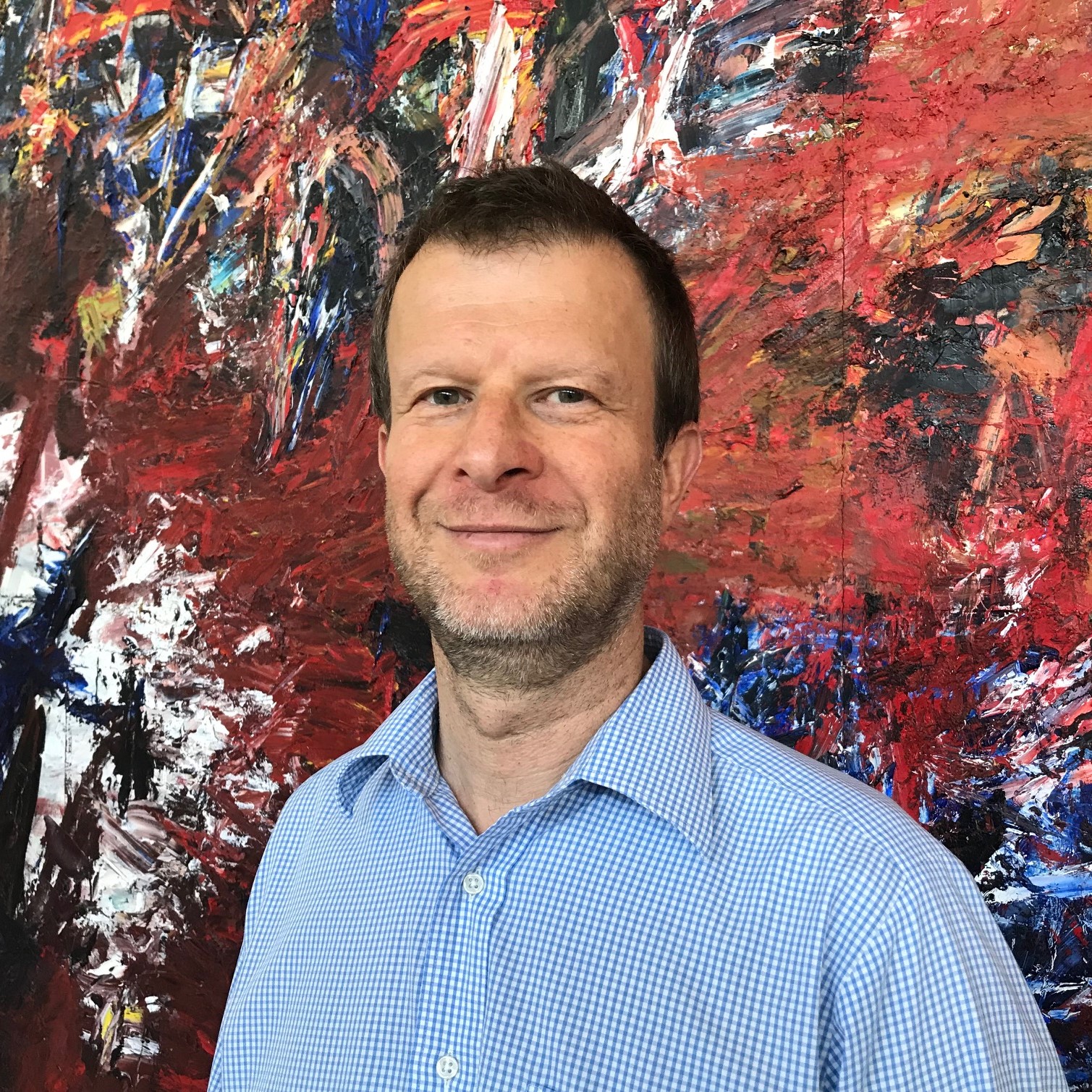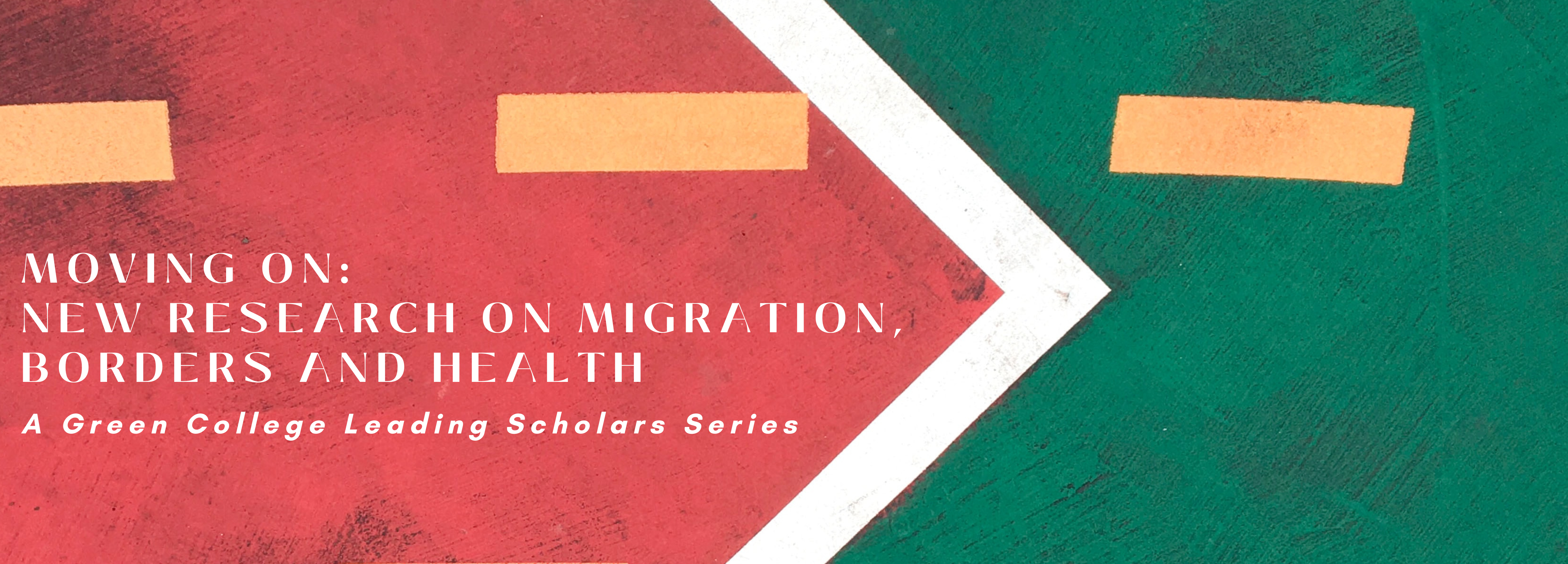Mental Health and Psychosocial Support of People Displaced in Humanitarian Settings: Lessons Learned

-
Mark van Ommeren, Head, Mental Health Unit, Mental Health and Substance Use, World Health Organization (WHO); and Green College Society Member
Coach House, Green College, UBC, and livestreamed
Thursday, January 12, 5-6:30pm with reception to follow
Tea and coffee will be available at 4:30pm in the Piano Loungein the series
Moving On: New Research on Migration, Borders and Health | Cecil H. and Ida Green Visiting Professor -
Mark van Ommeren will provide an overview of Mental Health and Psychosocial Support (MHPSS) in large humanitarian crises, including forced displacement, and outline what the WHO sees as the minimum actions to be conducted by the health sector in any large disaster or conflict. He will also discuss the dilemma of trade-offs in priority settings in term of impacts on suffering, human rights and equity, and what this means for research and practice.
 Mark van Ommeren, PhD, is Head of the Mental Health Unit within the WHO Department of Mental Health and Substance Use. The Unit covers a wide range of topics including suicide prevention, services across the life course, mental health education, psychological interventions, essential medicines and mental health in humanitarian emergencies and at the workplace. He coordinated the writing of the WHO (2022) World Mental Health Report: Transforming Mental Health for All.
Mark van Ommeren, PhD, is Head of the Mental Health Unit within the WHO Department of Mental Health and Substance Use. The Unit covers a wide range of topics including suicide prevention, services across the life course, mental health education, psychological interventions, essential medicines and mental health in humanitarian emergencies and at the workplace. He coordinated the writing of the WHO (2022) World Mental Health Report: Transforming Mental Health for All.
Much of Mark’s earlier work has focused on initiating and developing inter-agency mental health policy for humanitarian settings (e.g., Sphere standards, IASC guidelines, etc.) with linked implementation tools; developing, testing and disseminating a range of scalable psychological interventions; and “building back better” mental health services across different levels of the health system after major emergencies. As part of this work, he introduced the term “mental health and psychosocial support (MHPSS)” into the development of inter-agency humanitarian guidelines, which has resulted in improved collaboration across sectors in humanitarian settings around the world.
Born and raised in the Netherlands, he studied at the University of British Columbia (BSc in Statistics [1992] and MA in (Intercultural) Counselling Psychology [1995]) and received his doctorate (covering culture-informed epidemiology of mental disorders among refugees in Nepal) from the Vrije Universiteit in Amsterdam (2000).
Humanity has never been more mobile than it is today. Migration comes in many different shapes and forms, and it impacts those who move and those who stay put in multiple ways. Across roundtable and panel discussions, keynote talks and an edited book presentation, this Green College Leading Scholars Event Series adopts diverse multidisciplinary perspectives from cultural studies, medicine, history, linguistics, neuroscience, psychology, political science and bioengineering to dissect and explore the meaning of fast-moving people in a fast-moving world and its implications for our personal and societal physical and mental well-being.
Series Conveners: Anna Blakney, Biomedical Engineering; Benjamin Bryce, History; Annie Ciernia, Biochemistry and Molecular Biology; Megan Daniels, Ancient Mediterranean and Near Eastern Studies; Friedrich Götz, Psychology; Manu Madhav, Biomedical Engineering; Matias Margulis, Public Policy and Global Affairs; Elise Stickles, English Language and Literatures; Daniel Vigo, Psychiatry, and Population and Public Health; Lydia Wytenbroek, Nursing; and Ayaka Yoshimizu, Asian Studies.

-
Unless otherwise noted, all of our lectures are free to attend and do not require registration.
6201 Cecil Green Park Rd
Green College, UBC
Vancouver, BC V6T 1Z1
Canada
Custom Lecture Fields
|